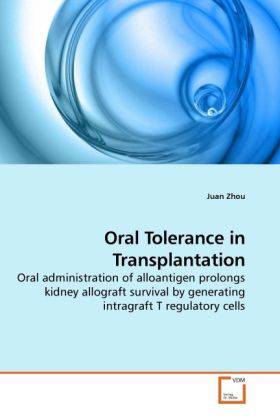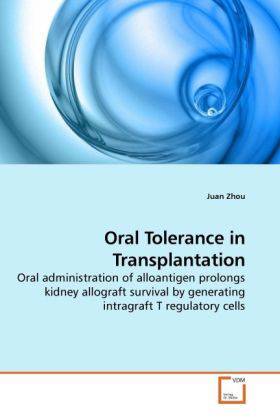
- Afhalen na 1 uur in een winkel met voorraad
- Gratis thuislevering in België vanaf € 30
- Ruim aanbod met 7 miljoen producten
- Afhalen na 1 uur in een winkel met voorraad
- Gratis thuislevering in België vanaf € 30
- Ruim aanbod met 7 miljoen producten
Zoeken
Omschrijving
A major goal of transplantation research is to develop a specific immune unresponsiveness to alloantigen. Oral administration of antigen prior to systemic challenge has been demonstrated to suppress systemic immune responses, and this antigen specific suppression is termed oral tolerance. This book assesses whether oral tolerance can be used to prolong kidney allograft survival and investigates the mechanisms by which this survival is prolonged. The book described that oral exposure to alloantigen prolongs kidney allograft survival in rats in an allospecific manner. The prolongation is due to a generation of CD8+ T regulatory (Treg) cells in the recipient. The CD8+ Treg cells are present in the spleen, mesenteric lymph nodes and kidney allograft and able to transfer the graft prolongation to naïve recipient. These Treg cells may shift immune responses towards type 2 responses and delete alloreactive T lymphocytes through Fas/FasL interaction.
Specificaties
Betrokkenen
- Auteur(s):
- Uitgeverij:
Inhoud
- Aantal bladzijden:
- 160
- Taal:
- Engels
Eigenschappen
- Productcode (EAN):
- 9783639222463
- Verschijningsdatum:
- 13/01/2010
- Uitvoering:
- Paperback
- Formaat:
- Trade paperback (VS)
- Afmetingen:
- 152 mm x 229 mm
- Gewicht:
- 244 g

Alleen bij Standaard Boekhandel
+ 116 punten op je klantenkaart van Standaard Boekhandel
Beoordelingen
We publiceren alleen reviews die voldoen aan de voorwaarden voor reviews. Bekijk onze voorwaarden voor reviews.











